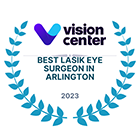
Whether you work from home, are attending virtual learning sessions, or just spend your free time browsing the Internet, you may have experienced a sense of fatigue after a while of looking at your screen. You may have also seen that blue light blocking glasses could help alleviate any strain on your eyes. However, skeptics might ask, “Do they really work, though?” We’re answering that question - and a few others - in our blog post today.
How do blue light glasses work?
Blue light refers to a type of electromagnetic radiation with a very short wavelength that produces a high amount of energy. In other words, blue light is an intense frequency of light, more so than another color such as red light at the same brightness. This radiation or light comes from two major sources in our lives: the Sun and our electronic devices.
Blue light blocking glasses do just what their name suggests. They will either have a reflective or colored film made to block the frequency of blue light and blue light alone. If the light is reflected or blocked before entering your eye, then it is not perceived and processed by your visual cortex.
What are the benefits of blue light glasses?
If you often work with computer screens for long hours, you may find blue light blocking glasses help in a variety of ways. Some of the most popular benefits are reduced eye strain and headaches as well as improved sleep quality.
Reduce eye strain
The first benefit often found - and felt - when wearing blue light glasses is reduced eye strain. This strain is often caused by long hours looking at our computer screens. Blue light blocking glasses reduce the intensity of the light being emitted from our screen, making it easier for your eyes to handle.
Avoid headaches
By reducing the amount of light entering your eye, you can also prevent headaches. These headaches are often caused by Computer Vision Syndrome (CVS). CVS refers to a group of vision-related problems that result from prolonged use of electronic devices. Decreasing the amount of light your eyes have to process will reduce the stress this puts on your visual cortex, preventing the resulting headaches.
Improved sleep
Perhaps the longest lasting benefit of blue light glasses is being able to sleep better at night. Like we said earlier, the Sun is actually the biggest natural emitter of blue light. While we might not think of the Sun as being blue, we do perceive the Sun’s blue light, and it’s one of the cues our circadian rhythm uses to know when it’s time to sleep. Prolonged exposure to blue light can throw off your circadian rhythm, while blocking the light with such glasses could help restore it.
Are blue light glasses worth it?
Ultimately, it depends on who you ask.
Doctors might say there aren’t enough studies to conclude blue light glasses really help with what we’ve previously listed. Some, like the American Academy of Ophthalmology, suggest that, “the symptoms of digital eye strain are linked to how we use our digital devices, not the blue light coming out of them.” Additionally, while blue light does affect your sleep, specialists would suggest reducing screen time altogether is more beneficial to your sleeping habits.
However, there is a larger group of people who find tremendous benefit from wearing blue light blocking glasses. They’re able to relax their eyes, don’t experience as many headaches, and don’t feel drained while on their computer.
If you’re going to get your own pair of blue light blocking glasses, we suggest purchasing some that block both UVA and UVB rays with anti-glare and anti-reflective coatings. However, if you’re experiencing extreme discomfort or your symptoms occur without being near a computer screen, please contact Dr. Bishop, our optometrist at Silk Vision & Surgical Center.











.png)
